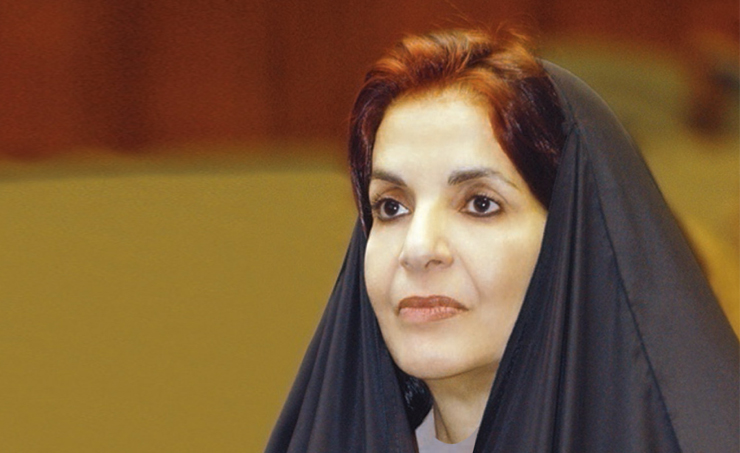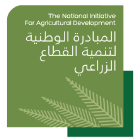بتوجيهات كريمة من صاحبة السمو الملكي الأميرة سبيكة بنت إبراهيم آل خليفة قرينة عاهل البلاد المعظم حفظها الله، تم إطلاق “المبادرة الوطنية لتنمية القطاع الزراعي” في عام 2010 بهدف تطوير القطاع الزراعي ودعم وتوحيد جهود الجهات ذات الصلة “الرسمية والخاصة ومؤسسات المجتمع المدني والمؤسسات التعليمية” في كل ما من شأنه الإرتقاء بالقطاع الزراعي وتمكينه من تحقيق أهدافه الاقتصادية والاجتماعية والبيئية وذلك بأسلوب متكامل يركز على التخطيط الدقيق والتقييم المستمر والمتابعة الفعالة، مع التركيز على استخدام التقنيات الزراعية الحديثة وتطويرها لتحسين كفاءة الإنتاج والحفاظ على الموارد الطبيعية. كما تولي المبادرة اهتمامًا خاصًا بتأهيل الكوادر البشرية المختصة في مجال الزراعة.

ومنذ أعوام مضت، والبحرين تعمل على تحقيق نمائها الاجتماعي والاقتصادي والبيئي مؤمنة بأن هذه الأسس هي ركائز أساسية للاستقرار. وتأتي المسيرة التنموية الشاملة لحضرة صاحب الجلالة الملك حمد بن عيسى آل خليفة ملك البلاد المعظم حفظه الله ورعاه لتواصل الطريق نحو ضمان الأمن الغذائي بما يمكن البحرين من تحقيق اكتفائها الذاتي وتعزيز قدراتها على مواجهة التحديات العالمية. وقد تم توجيه الجهود نحو تنويع مصادر الغذاء والابتكار في تقنيات الزراعة المستدامة، إضافة إلى تعزيز الشراكات مع الدول الصديقة والمنظمات الدولية لدعم القطاع الزراعي والبحري. كل ذلك يأتي في إطار رؤية البحرين الاقتصادية 2030 التي تهدف إلى بناء اقتصاد مزدهر ومتنوع، يحافظ على البيئة ويعزز رفاهية المواطنين، مما يسهم في تحقيق التنمية المستدامة ويضمن مستقبلاً أكثر إشراقًا للأجيال القادمة.
وتجسد النصوص الدستورية التزام الدولة بدعم التنمية الزراعية كجزء أساسي من الاقتصاد الوطني. إذ تبرز المادة (9-ز) التركيز على تعظيم استغلال الأراضي الزراعية الصالحة ودعم صغار المزارعين كعنصر حيوي لتعزيز الأمن الغذائي وضمان استمرارية الإنتاج المحلي. كما تؤكد المادة (11) على أن الثروات الطبيعية ومواردها ملك للدولة، وهي ملزمة بالحفاظ عليها واستثمارها بطريقة تحقق التوازن بين احتياجات الأمن الوطني والاقتصاد.
قطاع زراعي فاعل في تحقيق نماء اجتماعي وبيئي واقتصادي في مملكة البحرين
تحقيق النماء
- المساهمة في القضاء على البطالة
- دخل ثابت للأسر العاملة في القطاع الزراعي
- زيادة الرقعة الخضراء
- المحافظة على المياه والموارد الطبيعية
- الإستغلال الأمثل للأراضي الزراعية
- تحقيق مستويات مناسبة من الأمن الغذائي
- زيادة مساهمة قطاع الزراعة في الناتج المحلي الإجمالي
نعمل على تنسيق وتوحيد الجهود بين مختلف الجهات المعنية بقطاع الزراعة لتحقيق أهداف تنموية شاملة تشمل الجوانب الاجتماعية، البيئية، والاقتصادية، وذلك من خلال تأسيس بيئة عمل فعّالة تتماشى مع أهداف المشروع الإصلاحي لجلالة الملك المعظم حفظه الله ورعاه، ورؤية البحرين الاقتصادية 2030. تستهدف المبادرة جميع القطاعات الزراعية، مع التركيز على دعم المشاريع الصغيرة ومتناهية الصغر في مملكة البحرين. نحن مستندون إلى قيمنا التي ترتكز على ضمان استقرار ورفاهية المواطن البحريني، مع الحفاظ على البيئة والموارد الطبيعية وتعزيز المشاركة المجتمعية.
كما نعمل على نشر الوعي بالتقنيات الزراعية الحديثة وتجاوز العقبات التي تعيق تنمية القطاع الزراعي، من خلال تشجيع استخدام التقنيات الحديثة وتقديم التدريب والتأهيل للعاملين في القطاع.

ونسعى لتطوير الكوادر البشرية لخلق فرص عمل بالتعاون مع القطاع الحكومي وكافة الجهات ذات الصلة. ونلتزم بتأهيل موظفينا ليكونوا على استعداد للتواصل مع الفئات المستهدفة وتقديم الخدمات المختلفة مثل الاستشارات والمشاريع التي تعزز قدراتهم.
وعليه، فإن المبادرة الوطنية لتنمية القطاع الزراعي هي مبادرة غير ربحية، تعمل بمهنية لتعزيز حقوق صغار المزارعين، وتمكينهم، ودعم استراتيجيات الدولة لتحقيق استدامة القطاع الزراعي. كما تسعى المبادرة إلى توحيد الجهود لدعم المشاريع الصغيرة ومتناهية الصغر، وتوسعة الرقعة الخضراء في مملكة البحرين.

ترأس صاحبة السمو الملكي الأميرة سبيكة بنت إبراهيم آل خليفة، قرينة عاهل البلاد المعظم حفظهما الله، المجلس الاستشاري الذي تم تشكيله ليشمل أعضاء من مختلف القطاعات، بما في ذلك القطاعين العام والخاص، والمؤسسات التعليمية والقطاع الأهلي.
الاهداف
- العمل على زيادة وتوسعة الرقعة الخضراء في مملكة البحرين.
- إعداد وتنفيذ برامج توعوية لنشر الممارسات الزراعية المستدامة.
- إطلاق مبادرات، وجوائز، وحوافز تساهم في تطوير القطاع الزراعي.
- تشجيع القطاعين العام والخاص على الاستثمار في المجال الزراعي.
- التنسيق مع القطاعين العام والخاص لتعزيز ودعم المشاريع والبرامج الزراعية.
- دعم استراتيجيات الدولة لضمان استدامة تنمية وتطوير القطاع الزراعي في مملكة البحرين.
- اقتراح وتبني أحدث التقنيات الزراعية، وتشجيع ودعم الدراسات والبحوث العلمية في هذا المجال.
- تقديم مقترحات لتطوير البنية التشريعية والأنظمة الزراعية لتواكب المتغيرات والتحديات في هذا القطاع.
- التعاون مع مختلف القطاعات لتنظيم دورات تدريبية تهدف إلى تطوير الكوادر البشرية العاملة في القطاع الزراعي.
- مراجعة وتحليل المؤثرات والمؤشرات البيئية الزراعية في البحرين بهدف خلق بيئة زراعية تسهم في تحقيق التنمية الاجتماعية، البيئية، والاقتصادية.
المبادرة الوطنية لتنمية القطاع الزراعي تسعى لتحقيق أهدافها عبر مجموعة من الآليات المحددة، وهي:
- توحيد الجهود
العمل على تحديد كافة الجهات المعنية بالقطاع الزراعي، سواء في المجال التجميلي أو الإنتاجي، بالإضافة إلى الجهات المختصة بالموارد الطبيعية، والبيئة، والتدريب، والتأهيل، وتوفير فرص العمل. وتسعى المبادرة إلى التعاون مع هذه الجهات لدعم المشاريع الزراعية القائمة واستحداث مشاريع جديدة تهدف إلى تنمية القطاع الزراعي بجميع جوانبه.

- التعليم والتدريب والتأهيل
السعي إلى تطوير برامج أكاديمية ودورات تدريبية متقدمة تعتمد على أحدث التقنيات الزراعية، بهدف تحسين القطاع الزراعي في المملكة. وتسعى المبادرة إلى تدريب الراغبين في العمل بهذا المجال الحيوي على أعلى المستويات المهنية المتبعة عالمياً. كما تنسق مع الجهات المختصة لتعزيز التعليم وتطوير المهارات في مجال الإنتاج الزراعي، وتسهم في تطوير المناهج الدراسية الزراعية لضمان وجود خريجين مؤهلين لدعم الاستراتيجيات الزراعية المستقبلية. إضافةً إلى ذلك، تشارك المبادرة في مشروع تطوير ريادة الأعمال الزراعية بالتعاون مع منظمة الأمم المتحدة للتنمية الصناعية (اليونيدو)، بهدف تكييف برامج ريادة الأعمال لتلبية احتياجات القطاع الزراعي المحلي.
- ريادة الأعمال الزراعية
تعمل المبادرة على توعية المواطنين وتشجيعهم، وخاصة العاطلين عن العمل وأفراد أسرهم، للانخراط في العمل الزراعي والاستفادة من التقنيات الحديثة. وتدعم إنشاء مشاريع زراعية صغيرة ومستدامة تعزز الاكتفاء الذاتي الاقتصادي. كما تروج لمبادرات تأسيس شركات زراعية فردية أو مساهمة، تركز على إنتاج السلع الزراعية الرئيسية باستخدام أحدث التقنيات الزراعية.
- المعارض والأسواق
تنظم المبادرة كل عام معرض البحرين الدولي للحدائق، الذي يُعتبر منصة متكاملة لعرض كل ما يتعلق بالبستنة والزراعة، بالإضافة إلى توفير بيئة مثالية لتبادل الخبرات، واستعراض أحدث التقنيات الزراعية. كما يتيح المعرض الفرص لإنشاء شراكات تجارية جديدة بين المؤسسات المحلية والدولية.
للمزيد من المعلومات عن معرض البحرين الدولي للحدائق، يمكنكم زيارة الرابط: www.bigs.com.bh
وتسعى المبادرة أيضاً إلى إحياء الأسواق الزراعية الشعبية، بهدف إشراك الشباب في عرض منتجاتهم الزراعية، ودعم أصحاب المؤسسات الصغيرة والمتوسطة لتسويق منتجاتهم بما يعود بالنفع على الجميع.
- زيادة الرقعة الخضراء
تسعى المبادرة إلى توسيع الرقعة الخضراء في المملكة بالتعاون مع الجهات المعنية من خلال مشاريع التشجير، وإنشاء الحدائق الجديدة، وصيانة الحدائق العامة، والحفاظ على الثروة النباتية والمحميات الطبيعية.
- الترويج
تسهم المبادرة الوطنية للترويج للمشروعات والفعاليات الزراعية عبر تنظيم المعارض، المؤتمرات، وورش العمل بالتعاون مع الجهات المختصة. كما تهدف إلى نشر الوعي الزراعي بين المواطنين من خلال:
- تدشين جوائز في مجالات متعددة تسهم في تسريع التنمية الزراعية.
- الترويج للمشاريع الزراعية وقصص النجاح.
- التنسيق مع وسائل الإعلام المختلفة لتسليط الضوء على الزراعة والاستثمار الزراعي.
- إصدار منشورات ودوريات وكتب ومجلات ودراسات تهتم بالزراعة.
- إنشاء موقع إلكتروني يكون مرجعاً موثوقاً للمعلومات للباحثين والمستثمرين في المجال الزراعي.
